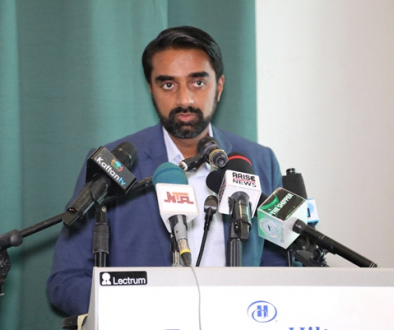Why all businesses should practice Know Your Customer (KYC)
News of the torrent of terrorism attacks perpetuated by Boko Haram in northern Nigeria often reports that Boko-Haram has access to weapons and machinery that are sophisticated, more so than the military’s. One report of the Chibok girls’ adoption alleged that the terrorists arrived in a fleet of brand new Toyota buses.
The following question arises; how does Boko-Haram buy all the guns, buses, food, and IT equipment that it uses? Are any of these supplied by businesses within Nigeria? Is the private sector, through careless dealing with terrorism-linked customers complicit in the spate of terror in Nigeria?
I hypothesize that it is possible that some financial institutions facilitate funds transfers that sponsor terrorism, and that a range of other organizations knowingly or unknowingly provide support for terrorist organizations. Any effort at stopping Boko- Haram must include efforts to identify the supply chains that are linked to it and to stop the supply of goods that enables it to carry out its nefarious acts.
Businesses should take an ethical stand that disallows its goods and services from becoming tools in the hands of those seeking to harm society. This will require looking beyond narrow definitions of business success such as profit to having a sustainable view that regards business as an enabler of society’s good. This makes business sense as it ensures that the business will continue to have a functioning society to support.
One way for businesses to guard customers’ ethical use of their products is to practice Know Your Customer (KYC). Know your customer policies are widely used in the financial services sector and are often a regulatory requirement.
Know your customer requires financial institutions to exercise due diligence before opening a customer account. In the case of an institutional customer, it connotes knowing the individuals with authority to act on behalf of that customer, verifying the business activity and the legitimacy of the business activities themselves.
Typical KYC elements include documentation, verification of documents used in opening accounts as well as transaction monitoring to identify unusual transactions and raise the appropriate red flags to the appropriate authorizes.
KYC policies and practices help to identify the probability of a customer engaging in money laundering or terrorism funding. KYC practices do not only benefit the society, they protect businesses from reputational, operational and financial risks that may arise from unwittingly facilitating fraudulent or terrorists acts.
This principle should be adopted by other businesses operating in Nigeria; they should know their customers and be on alert to identify business transaction with suspicious characteristics that may point out links to terrorist activities. Such suspicious characteristics include an unusually high quantity of inflammable materials, clandestine delivery times, proximity to known terrorists locations, high volume of high value cash payments and customer wealth without relevant business activity to support it. These suspicious transactions should then be escalated to appropriate regulatory or security agencies that may then follow up.
To be sure, adopting this approach may lead to a number of false alarms and may substantially increase monitoring and policing costs but these costs may well be worth it if one considers the human and economic casualties of the unjustifiable war on Nigeria by terrorists. As someone once said, the price of freedom is eternal vigilance. Businesses must go beyond finger pointing at the government for its failures to end terrorism but must ensure that it comes to equity with clean hands.
In a similar vein, as events lead up to the general elections in Nigeria, businesses should be ethical when dealing with politically exposed persons and should be sure to avoid lending their services to campaigns that are incendiary in nature.
Image credit: clixmarketing.com



